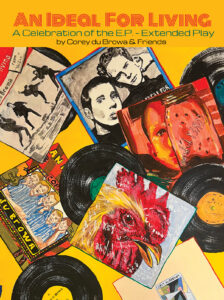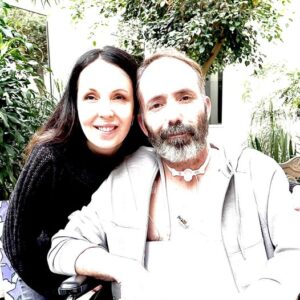Let me begin by stating that for me “faith” is “trust,” or better, “trusting.” It is existential and relational, not merely a matter of knowing facts. It is not an “answer” to hard questions. It’s not an answer to anything. And it’s not a substitute for knowledge. Faith helps us find our way in the mystery that is life, encourages us to fight the cynicism created by certainty, and to oppose evil even when it looks insurmountable.
I don’t think faith, in a biblical sense, anyway, has much to do with belief. Belief is a preliminary form of knowing; it rests on presuppositions prior to “proofs.” Belief may have to do with doctrine and “answers” about why God allows terrible things to happen. I, personally, don’t have much truck with answers to questions like that. If you claim to have an answer to such questions I probably will stay pretty far away from you.
Faith as trust, however, is an existential attitude and action, not a set of doctrines or answers to terrible mysteries. Faith leads many of us to work for love and justice in the face even of terror. It trusts that the God who calls us to live in such a way will make our lives and the sacrifices we make meaningful and rich, and in the long run, even effective, although we may never see it.
Faith and hope are related– they deepen each other– but they are not the same thing.
Here is how I think faith and hope are distinct: Having faith in a person, a spouse perhaps, doesn’t require any specific action from the one in whom you have faith. It is a matter of sheer trust. It is open-ended: My faith in Christine is based not on facts I know about her (though they certainly enter in), but on my relationship with her, my experience with her. Faith in her doesn’t require her to do something, as in “I have faith that she will win the race.” It just requires her to be her. Faith in a person is trusting the character of the person. And that comes from relationship–shared experience over time.
Hope, on the other hand, it seems to me, is more pointed and usually requires an object or an action: “I hope that Bill’s health improves” or “I hope that Jane stops seeing that guy she works with.” Hoping often is just wishing. It desires a certain future state of things: I hope that I win the lottery.
But when faith and hope, not the same, but distinct, are combined we might say something like this: I have faith in the woman I love, that she loves and accepts me as unreservedly as a human can, but I made a terrible mistake yesterday. I lost all our savings that we were counting on to pay for an operation for our only child. I hope that she can forgive me.
It is my faith in her love that allows me to hope for her forgiveness. And if she forgives me, my hope will not have been in vain, and my trust (faith) in her will deepen still further (although her faith in my investing ability will probably decline, that is, it will be harder for her to trust me with our finances). If this example makes sense, it is because hope that is not just wishing (wishful thinking) requires faith; faith in a relationship, let’s say.
“What terror?” you ask when I say trust in God encourages me to work for love and justice even when there seems to be no possiblity that my acts will make any difference, and may just get me killed. Terror is what people face when in the service of justice or love they are called to act in a way that may lead to their death, or more terrifying still, the death of those whom they love. You object to the idea of naming faith in God as a source of strength to work for justice against overwhelming and terrifying opposition and threat. Perhaps you think I’m confusing the issue with mumbo-jumbo when all we need to do is to follow our instinct to survive; a god has nothing to do with it.
But, I can’t go with your suggestion that instinct for survival is a sufficient means for working for justice in a world of cruelty and barbarism. Each day we must make choices on whether we are to live solely for our own interests and the interests of those in our circle, or take into account those who suffer because of our choices. I can give countless examples of people who, had they acted on their instinct for survival, would have acted unjustly.
Here’s one. My friend Alain Blancy was just a little boy. He and his family were fleeing Vichy France where they were in danger of being sent to their death in a Nazi concentration camp. They got to the Spanish border, but no one would assist them for fear of reprisal. They made their way across the South of France to Italy. Fascist Italy. They crossed into the Italian Alps in winter, and there they were taken in, hidden, protected, and fed for the entire war. The peasant family that took them in risked everything to act in a way that survival instinct would not allow. The Italian father knew that if caught, he could be shot to death in front of his family and small town as an example.
Survival instinct would say “protect yourself, or at least protect your offspring.” Throughout the world thousands of people have made similar decisions to risk it all for justice. Many, many were killed– entire families and communities– because of those decisions. And it is clear that their brave actions, in the case of WW2, did not do anything to bring the war closer to an end by even a day. But many of us believe that those acts make this world more liveable and strengthen the hearts of those who come after, who must face similar decisions.
Deciding to work for justice and love is not a small matter. I have been privileged to be among people who’ve made terrifying choices for the sake of love and justice, who if acting out of survival instincts, would have acted differently. For most of us justice will not, I pray, require us to give up our lives and the lives of those whom we love. But, whether in small choices or large, I don’t think survival instinct will create the kind of world we want our children to inherit.
Finally, you ask “Which god are you talking about?” Right on! The answer to that question determines everything! I am talking about the God, or god, if you like, who is revealed through the life, actions, and teachings of Jesus of Nazareth, as they are found in the New Testament in the context of the Old Testament.


